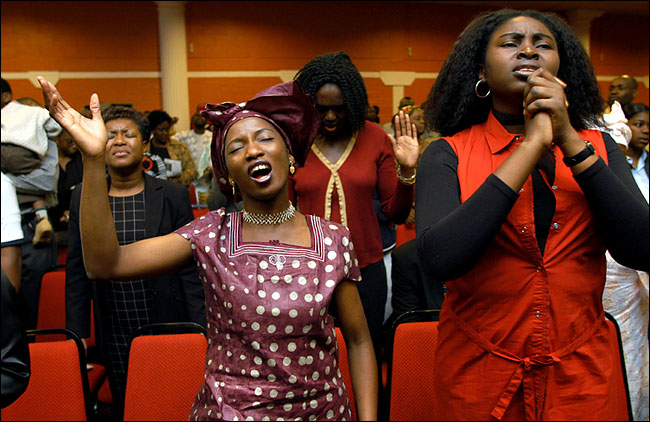
Is Christian Fundamentalism so bad for women? [Blog/Article]
Throughout history women have had to deal with gender and sexuality issues that have led to a struggle and fight to be seen as equal in society. Women’s movements have existed to gain rights in business, politics, education, and so on. Much progress has been made to give women opportunities that those before them did not have. For women in the church, there has been progress but struggles still avail. While there are more women in church than men, majority of church leadership rests on shoulders men. The roles women are allowed to play in ministry vary, but have been limited when it comes to particular roles, such as being a Pastor, particularly when it comes to Fundamentalist and Evangelical churches.
Viewing what the Bible says about women in a literal sense has led Fundamentalists to leave women out of roles related to Pastoring, ordination, and even teaching men based on the writings of the Apostle Paul. In turn, women are to support male leadership, be a “helpmeet,” teach and raise children, and work with other women on evangelism and missions. In the home, the husband is considered the head of the household because of scriptures found in the epistles of Paul, such as 1 Corinthians 14:34; 1 Timothy 2:12. Women are in charge of the care and teaching of the children, of the order of the house and making sure the husbands have the support they need to effectively provide for the family and lead the household spiritually. Men are charged with running the family, business, and church. Many women embrace their roles in the family despite how some can view this as limiting and sexist.
Instead of being viewed negatively, as un-empowering and patriarchal, women are having a positive impact on family life. Women have a high level of power in family life, but whether or not this power is transferred into the church depends on the way you look at it.
For women who would like leadership positions in the church, most churches do not offer them, though some have allowed women to be senior, associate and co-pastors. For other women, they gain leadership by seeking positions in other ethnic denominations and other positions, such as professors and chaplains. Though this is problematic for women of all races, it is quite fascinating to see this problem for black women who have also had to deal with civil rights issues as well. One would suspect that black men would be open to black women in this way, but historically that has not been the case. When women are placed in a pastoral role, more often than not, they are placed as the shepherd of small churches. They are also given subordinate roles to the pastors or allowed to be a Pastor if they have a husband who is also pastoring along side them. Other women leave their churches to start their own, when they get no support or opportunity in their own denomination. Some are so shut out of leadership in the church that instead of continuing the pursuit of their pastoral call in the church, they have sought opportunities for ministry in other avenues, such as counseling, teaching and professorship, chaplaincy, youth ministry, and evangelist. While many women are not afforded the same opportunities in pastoring as men, when they are, they receive smaller congregations and are often paid lower salaries.
When the Bible is interpreted literally, women are placed in positions that appear to limit their ability to do what God has called them to do. Their family and economic life get heavily impacted because of it. Many are not able to obtain powerful positions in the church because of fundamental values instilled in congregations that men and women attest to. One can only imagine the emotional and spiritual affects on women because of these beliefs. On the contrary, fundamentalism does not affect all women negatively. Many women are able to care for their families in the way they would like and are able to be fiscally creative and responsible, while still learning to be leaders in ministry. Women are able to build relationships, work in ministry and at times own more power than their very own male pastor.
Fundamentalism affects each aspect of a women’s life. In taking a look at both sides, it begs the question: is Christian fundamentalism so bad for women? I guess the answer is it depends. It depends on us women. How we see it, how we feel about it, and how it affects our lives through our own biblical beliefs, support system, and the political structure of our respective churches.
So many of us have encountered fundamentalism in some way in our religious lives. What are you thoughts about its impact on women?
Adapted from “The Effects of Fundamental Biblical Interpretation on Women in Ministry through the Lens of the Conceptualization of Women in Ministry as a Social Group” by Brooke (Everett) Harris
